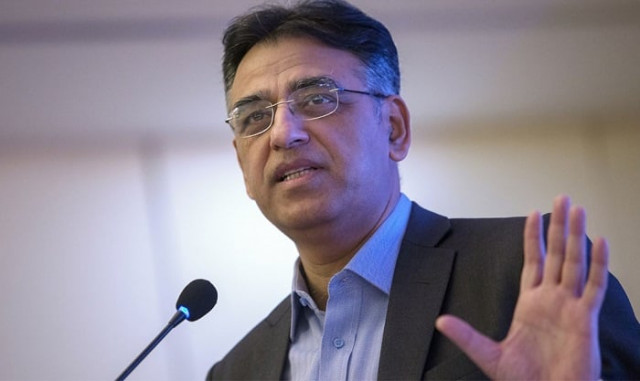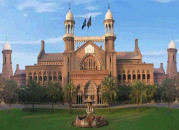Govt in bid to drag down food prices
Decides to reduce customs duty on food items

The government on Monday decided to reduce customs duty on food items in order to bring the prices of essential commodities down to provide relief to the masses.
Commodity prices had gone up in recent weeks, including that of certain edibles, petroleum products, etc. The opposition used the price hike to attack the government in their public rallies as well as the ongoing National Assembly session.
On Monday, Prime Minister Imran Khan chaired a meeting attended by key federal ministers as well as the provincial chief secretaries and other senior officials. During the meeting, the prime minister received a briefing on the inflationary trend in the country, sources said.
According to the sources, it was decided in the meeting to reduce taxes and duties on food items. The prime minister directed for taking steps to put in place the price control committees. He also directed the ministers to keep an eye on the artificial price hike in their constituencies.
Premier Imran ordered that strict action must be taken against hoarding and illegal profiteering. He directed the provinces to submit a report on the prices of basic commodities on a daily basis, the sources added.
Addressing a news conference on Monday, Minister for Planning and Development Asad Umar said the government has decided to reduce GST rate and customs duty by half to 8.5% and Rs5,000 per ton, respectively and would also abolish 2% additional customs duty to cut cooking oil prices by Rs45 per kilo.
The planning minister said that the decision will be implemented on return of Shaukat Tarin from abroad.
Umar was the third cabinet member that has made this announcement. Earlier, Tarin and Jamshed Iqbal Cheema had given similar statements and committed that the taxes would be reduced from October.
While stressing that the world is going through an “extraordinary” situation in terms of commodity prices, Umar said the rates of basic commodities were still lower in Pakistan as compared to the rest of the world. The minister, however, admitted that purchasing power of people had been direly affected in Pakistan in view of soaring inflation in recent months.
He also admitted that the sugar prices could not be brought down to Rs90 per kilo, as had been announced by the government.
Umar said the wheat flour prices increased due to increase in the income of farmers by setting the wheat support price at Rs1,800 per 40kg. He again appealed to the Sindh government to start releasing wheat to the flour mills to bring down the prices in the province.
This year there was record production of wheat, rice and second highest production of sugarcane that suggested the government’s agriculture policies have started yielding results, the minister said.
READ Tareen advises govt to prioritise controlling inflation
To a question about the role of middleman in price hike, the minister said that the government has not been successful in completely breaking the cartels but it would also be wrong to say that it remained unsuccessful.
He also said that the government was set to roll out targeted subsidies to the masses and this is the best time to take this measure. He said the prime minister would unveil details of the subsidy programme in the next few days, and subsequently, after a month, people would start getting some relief.
He said economies had reopened after the pandemic with limited availability of products in the market which had resulted in rising prices all over the world. The planning minister recalled that the government took measures during the Covid-19 lockdown in 2020 and it opened industries in the first phase to keep the economic cycle going.
He said the prices of crude oil, urea and sugar had drastically increased in the international market and Pakistan was feeling its impact.
He said the rising price trend may not ease before the next six to eight months while the government has already given maximum possible relief in petroleum products by slashing taxes.
“Prices in Pakistan have clearly gone up but the increase is less when compared with the surge in global commodity prices,” Umar said.
The government has set the maximum electricity rate for domestic consumers at Rs24.33 per unit – almost double than the average generation cost – and notified per litre petrol price at nearly Rs138.
On the reasons behind the increase in prices of petroleum products, Umar said, “Taxes and partly the exchange rate are in the control of the government and Prime Minister Imran Khan has already given whatever relief is possible.”
He said the rupee devaluation did impact the prices but a major role was of the international commodity prices.
Pakistani currency plummeted to a new historical low of Rs172.8 to a dollar on Monday, which will further stoke inflation.
To a question, Umar said that he was not aware about the International Monetary Fund’s (IMF) demand to increase general sales tax (GST) on petroleum products to 17% and petroleum levy to Rs30 per litre since he was not part of the IMF negotiations. But he said that currently, the government was charging about Rs24 per litre tax on petrol, which is less than 20% of the total price.
Sources told The Express Tribune that in the last week of Pakistan-IMF talks, the fund demanded of the government to end different rates of GST and increase all low rates to standard 17% -- a condition if accepted by the government would bring another round of inflation at a time when people’s purchasing power is fast shrinking.
About prospects of slowdown in pace of inflation, Umar said that it could take at least six months for the global commodity prices to head towards normalcy. Some experts say that the prices may start easing out by March but majority of them are predicting that prices would start stabilising by May or June next year, he added.
Umar also announced reducing taxes on edible oil to cut its prices in the domestic market – a decision that is contrary to what the IMF is asking for.



















COMMENTS
Comments are moderated and generally will be posted if they are on-topic and not abusive.
For more information, please see our Comments FAQ